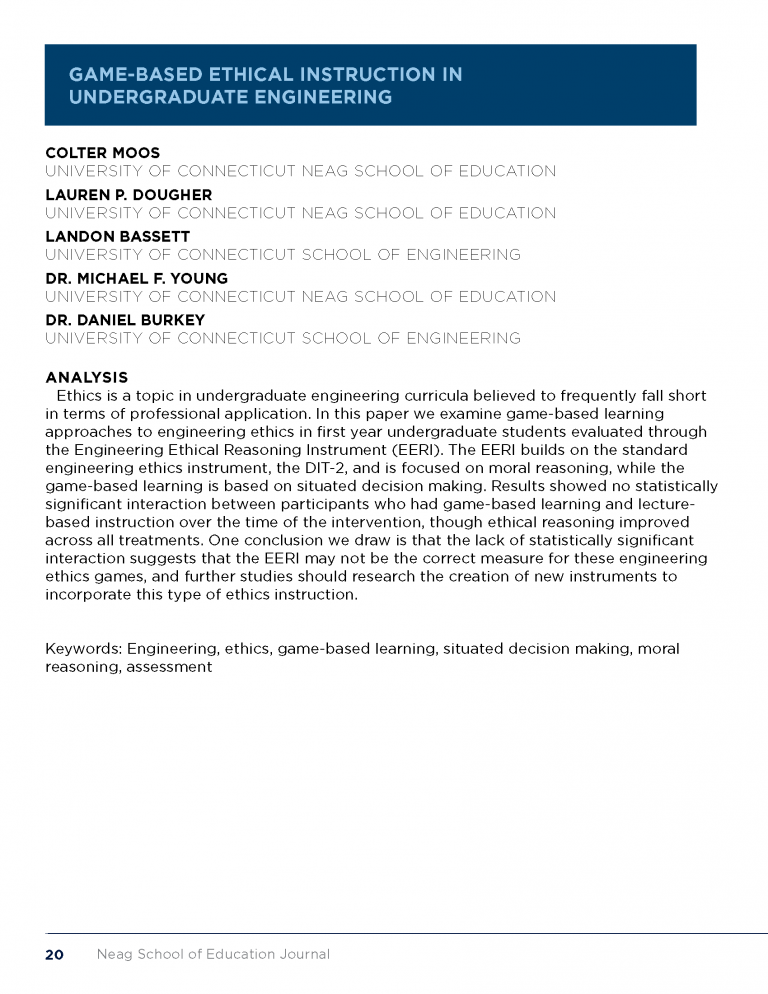Authors
Colter Moos, University of Connecticut Neag School of Education
Lauren P. Dougher, University of Connecticut Neag School of Education
Landon Bassett, University of Connecticut School of Engineering
Dr. Michael F. Young, University of Connecticut Neag School of Education
Dr. Daniel Burkey, University of Connecticut School of Engineering
Abstract
Ethics is a topic in undergraduate engineering curricula believed to frequently fall short in terms of professional application. In this paper we examine game-based learning approaches to engineering ethics in first year undergraduate students evaluated through the Engineering Ethical Reasoning Instrument (EERI). The EERI builds on the standard engineering ethics instrument, the DIT-2, and is focused on moral reasoning, while the game-based learning is based on situated decision making. Results showed no statistically significant interaction between participants who had game-based learning and lecture-based instruction over the time of the intervention, though ethical reasoning improved across all treatments. One conclusion we draw is that the lack of statistically significant interaction suggests that the EERI may not be the correct measure for these engineering ethics games, and further studies should research the creation of new instruments to incorporate this type of ethics instruction.
Keywords: Engineering, ethics, game-based learning, situated decision making, moral reasoning, assessment

